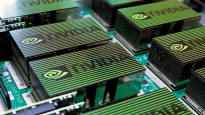The trade war between Western countries and China over powerful microchips has intensified significantly in recent months. Having Japan and the Netherlands on a common front is a major victory for the United States.
China’s leading nuclear weapons research institute has succeeded for years in acquiring powerful American-made microchips for its use, despite long-term export restrictions, reports a financial newspaper Wall Street Journal (you are moving to another service).
Based on the documents reviewed by the magazine, the technical physics research institute under the Chinese administration has in the last two and a half years gotten its hands on semiconductors manufactured by Intel and Nvidia, among others, even though the research institute has been on the US blacklist since 1997.
According to the Wall Street Journal, microchips obtained from Chinese retailers were used, among other things, in computer systems built to study numerical flow dynamics. Calculations that simulate the interaction of liquids and gases are used, for example, for modeling nuclear explosions.
The United States has banned the use of all American-made products in nuclear weapons research. The Chinese Institute of Technical Physics is one of the first institutions to end up on the US blacklist.
However, being on the banned list did not prevent the research institute from acquiring efficient microchips from the open market. China is known for the fact that the export restrictions imposed on institutions under the government leak through private companies. In China, the relations between the administration and the business world are close, and if necessary, the Chinese administration takes advantage of desk box companies to circumvent restrictions.
According to Nvidia, the semiconductors used by the research institute are graphics circuits in general use, which can be found, for example, in computers. For such commonly available components, the United States has very limited ability to ensure the end user of the product.
The US tightens chip export restrictions
Over the past few months, the US administration has significantly tightened its export restrictions on microchips. In the fall, the president Joe Biden the administration announced restrictions on exports of semiconductors and artificial intelligence-related technology to China. After this, the country has been actively negotiating with countries that play a significant role in the production of microchips.
Last week’s financial publication Bloomberg (you will switch to another service) reported that Japan and the Netherlands have also reached an agreement with the US on export restrictions to China. The Japanese companies Tokyo Electron and Nikon and the Dutch company ASML play a vital role in the manufacturing process of advanced microchips.
More detailed information about the agreement between the three countries has not yet been received. News agency of Reuters (you will switch to another service) according to the information has not been received even by the companies that are affected by the tightened export restrictions.
Having Japan and the Netherlands on a common front is a major victory for the United States.
– The restrictions on the manufacturing equipment are the key to the restrictions working at all, a technology expert at the American think tank CNAS Alexandra Seymour said earlier in an interview with .
Read also:
The Soviet Union copied Rolls-Royce jet engines that changed the course of the Korean War – now the US is making sure the same mistake doesn’t happen again with China and microchips
